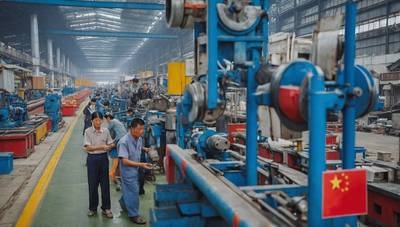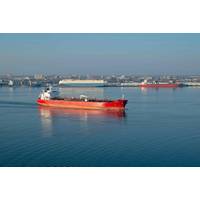China's industrial profit continues to decline due to deflation and demand woes
China's industrial profit fell for the third consecutive month in August, as businesses struggled to cope with a subdued market and persistent deflation at the factory gate despite policies designed to support the economic recovery.
Last month, exports exceeded expectations but a number of disappointing indicators has kept Beijing under pressure to provide more stimulus.
The government has taken measures to boost domestic consumption and stop price wars. However, these efforts are yet to yield significant results due to ongoing deflationary forces and a prolonged housing slump.
National Bureau of Statistics data released on Wednesday showed that profits at China's manufacturing firms dropped 1.5% from the previous year in July, after a drop of 4.3% in June. A 1.8% decline in profit in the first half of the year was slightly reduced to a drop of 1.7% in the period January-July.
The trade truce that was reached between China and the United States helped ease tensions, but analysts claim the lack of a lasting deal has undermined confidence in businesses.
The escalation in tariffs could worsen the already intense cost competition due to concerns about overcapacity. In order to offset this, a large part of the responsibility falls on the policy support that is provided to increase domestic demand in this year, said Lynn Song. ING's Chief Economist for Greater China.
Top Chinese solar manufacturers, including Tongwei Co, JA Solar, and Jinko Solar, reported larger losses on the back of falling prices in the first six months.
Anhui Jianghuai Automobile (a major state-owned automobile manufacturer) suffered a net loss in the first six months of the year, down from 300.8 million yuan profit in the previous period.
Beijing has increased infrastructure spending, consumer subsidies and monetary ease, despite weak consumer and business confidence, which has affected demand and the economy as a whole. China's bank loans in July contracted unexpectedly for the first 20 years.
Yu Weining, NBS statistician, said that "increased flexibility and predictability" is needed. He cited external uncertainties, insufficient demand at home, and supply and demand imbalances in certain sectors.
State-owned companies reported a 7.5% drop in profits for the first seven month period. The data revealed that private-sector companies saw their profits rise by 1.8%, while foreign firms also recorded an increase of 1.8%.
The figures for industrial profit are based on firms that have an annual revenue of 20 million yuan (2.80 million dollars) or more from their primary operations. $1 = 7.1551 Chinese Yuan (Reporting and editing by Jacqueline Wong, Shri Navaratnam and Tina Qiao)
(source: Reuters)







